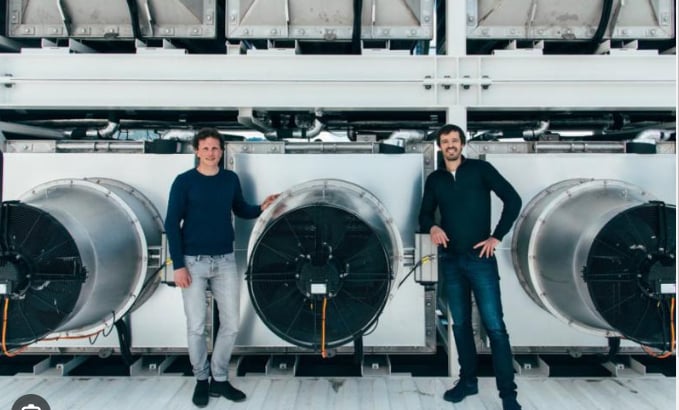November 24, 2025 | 08:26 GMT +7
November 24, 2025 | 08:26 GMT +7
Hotline: 0913.378.918
November 24, 2025 | 08:26 GMT +7
Hotline: 0913.378.918

Transforming carbon dioxide into fertilizer is now possible: the operational facility is in Switzerland
The food system is at a pivotal moment: The agriculture sector has a massive carbon footprint, and the extreme weather caused by climate change is making farming more difficult. But the problems are also driving technological innovation in the industry, from solar-powered, robotic farm equipment to the world’s first vaccine designed for bees.
Aigen
For taking robotic farming off the gridAigen‘s robotic weeding machine is designed to make it possible for farmers to avoid using expensive, unsustainable herbicides. As the robot rolls down a row of crops, it uses AI to recognize and uproot weeds and analyze crop data. Unlike other robotic farming equipment, it doesn’t require fuel or recharging. A solar panel on the top provides most of the power, doubling as a sail that can capture wind energy. The wheels also have regenerative motors that capture more energy.
Dalan Animal Health
For creating the first honeybee vaccineBees face multiple stresses, from climate change to pesticides. Last winter, beekeepers in the U.S. lost around half of their hives. Dalan Animal Health is focused on one challenge—a highly contagious disease called foulbrood that threatens bees worldwide. The company developed the first-ever vaccine for bees, which is given to a queen bee to pass on to her offspring. After nabbing a conditional license from the FDA in late 2022, Dalan started piloting the vaccine with thousands of hives.
Windfall Bio
For transforming carbon pollution into fertilizerFarming is a major source of methane, a potent greenhouse gas (cow burps, we’re looking at you). But Windfall Bio has found a novel way to make use of the pollution. By boosting natural methane-eating microbes in the soil, it’s possible to capture methane from the air and put it to work as organic fertilizer for crops. That helps solve a second climate challenge: Synthetic fertilizer is typically made from fossil fuels and has a large carbon footprint itself.
(FC)

(VAN) In Brazil, FAO unveiled a series of reports and initiatives showing how sustainable agrifood systems are a solution to the climate crisis.

(VAN) With names like neodymium and dysprosium, rare-earth elements sound exotic — and their perceived scarcity has only added to the mystique.

(VAN) In a new study published in Trends in Biotechnology, researchers used a gene-editing technology called CRISPR to increase a fungus's production efficiency and cut its production-related environmental impact by as much as 61%- all without adding any foreign DNA.

(VAN) A top official in Beijing’s Cop delegation says China is committed to clean energy – but US’s absence is a problem.

(VAN) The Bangsamoro region’s inflation rate rose slightly to –1.3 percent in October 2025 from –1.5 percent in September, the Philippine Statistics Authority (PSA-BARMM) reported.

(VAN) FAO-led report says protecting and restoring forests is crucial to boosting climate-resilient agriculture, rural livelihoods and global food and water security.

(VAN) Flagship partnership secures additional GBP 16.9 million to strengthen forest monitoring, transparency and country support to 2030.